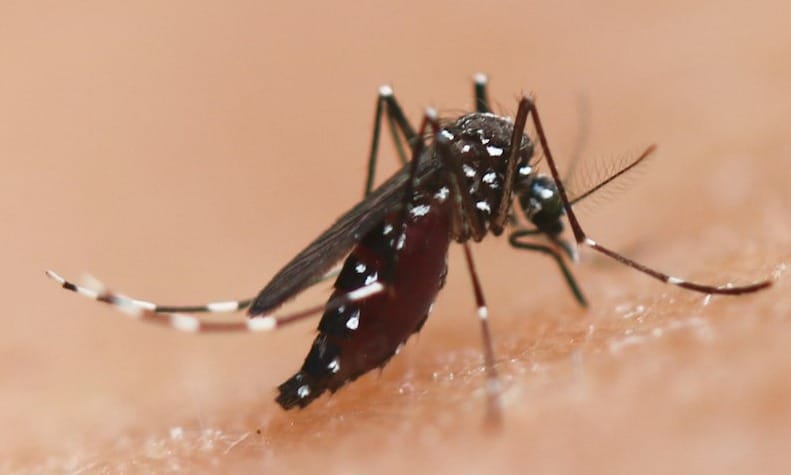Ultimate Guide to Insect Repellents for Travelers: Stay Protected Naturally and Effectively

💬 Disclaimer
I’m a licensed pharmacist, but the information provided on this blog is for general knowledge and educational purposes only. It should not be considered a substitute for professional medical advice, diagnosis, or treatment. Always consult your healthcare provider or physician before making any changes to your medication, travel health plans, or treatment options. I share tips based on clinical experience and current guidelines, but individual needs may vary.
Use of this site and its content is at your own risk.
🛍️ Why Travelers Need Insect Protection
Whether you're trekking in the tropics or relaxing in a cabin in the woods, insects can be more than a nuisance — they can be dangerous. Travelers risk exposure to vector-borne diseases like malaria, dengue, Zika virus, Lyme disease, and more.
Common Travel-Related Insects:
- Mosquitoes – Transmit dengue, malaria, Zika, chikungunya
- Ticks – Risk of Lyme disease, tick-borne encephalitis
- Sandflies – Linked to leishmaniasis in certain regions
- Bees, Wasps, Ants – Cause stings and allergic reactions
- Fleas & Mites – Often encountered on pets
🛅 Pre-Travel Bug Protection Tips
Before packing repellent, start with these proven avoidance methods:
- 🏠 Keep doors and windows closed, especially at night
- 🌬️ Use a fan to circulate air and deter flying insects
- 🔥 Burn citronella candles (Travel Tin) or use plug-in diffusers
- 🌿 Essential oils like eucalyptus, peppermint, and camphor
- 💧 Remove standing water near your accommodation
- 🚮 Wear light-colored clothing with long sleeves and pants
- 👕 Tuck pants into socks in tick-prone areas
🌿 Natural Insect Repellents: What Really Works?
Natural insect repellents can be surprisingly effective when used correctly. Look for products with these key ingredients:
- Oil of Lemon Eucalyptus (OLE)
- Effectiveness: Comparable to low-strength DEET
- Best For: Daily use in high-risk areas
- Citronella
- Effectiveness: Mild and short-lasting
- Best For: Outdoor patios, campsites
- Geraniol
- Effectiveness: Plant-derived and low toxicity
- Best For: Skin application
- Menthol, Camphor, Eucalyptus Oils
- Effectiveness: Soothing and repelling
- Best For: DIY sprays and balms
💡 Tip: Create your own travel spray using essential oils + witch hazel in a refillable bottle.
🎮 DEET vs. Picaridin vs. Natural Options
Here’s how the top insect repellents stack up:
- DEET (20–30%)
- ✅ Pros: Long-lasting, highly effective
- ❌ Cons: Can be greasy; may damage some fabrics
- 🧳 Best For: Jungle trekking, tropical destinations
- Picaridin (20%)
- ✅ Pros: Odorless, non-greasy, gear-safe
- ❌ Cons: Slightly shorter protection time than DEET
- 🧳 Best For: Families, general travel
- Natural Repellents (OLE, citronella, etc.)
- ✅ Pros: Eco-friendly, pleasant scent
- ❌ Cons: Requires frequent reapplication
- 🧳 Best For: Eco travel, low-risk areas
Always reapply after swimming, sweating, or every few hours as recommended.
🦜 Tick Prevention & Bite Management
Ticks can latch on silently and transmit Lyme disease. Protect yourself by:
- Staying center trail during hikes
- Wearing light-colored, long-sleeve clothes
- Spraying clothes with permethrin
- Doing daily tick checks (especially behind knees, in the groin and scalp)

If You Find a Tick:
- Remove with fine-tipped tweezers
- Pull slowly upward; clean with antiseptic wipes
- Monitor for Lyme symptoms: bullseye rash, fever, joint pain
💉 First Aid for Bites and Stings
- Mosquito bites: Hydrocortisone, Calamine lotion
- Bee/Wasp stings: Remove stinger, ice, antihistamines
- Ant bites: Wash with soap, apply anti-inflammatory cream
- Pain or swelling: Take ibuprofen

🚨 Allergy Alert: Carry antihistamines or an epinephrine injector if prescribed.
🚗 What to Pack: Travel Insect Defense Kit
Your essentials list:
- ✅ DEET or Picaridin repellent
- ✅ Natural repellent roll-on
- ✅ Mosquito coils or plug-in repeller
- ✅ Citronella candle
- ✅ Essential oil kit + spray bottle
- ✅ Lightweight shirt & pants
- ✅ Permethrin spray
- ✅ Fine-tip tweezers
- ✅ Ibuprofen & antihistamines
🚫 It’s Not Just Mosquitoes
Most travelers only prep for mosquitoes — but ticks, ants, flies, sandflies, and stinging insects also pose risks depending on your destination. Take a wide-angle approach for protection, especially in forests, remote beaches, and eco-lodges.

🚀 Ready to Travel Smart?
Bookmark this post, stock your kit, and explore confidently.
Have questions about travel meds or country-specific insect risks? Drop a comment or message me — I’m happy to help.
🔗 See the full Travel Health Series here
Ready to Plan Your Own Adventure?
We’ve made it easy by rounding up the same trusted tools we use to book flights, stays, insurance, and activities. Whether you're chasing waterfalls in Ecuador or relaxing in a cabin, these resources have you covered.
Plan Your Trip with Our Trusted Travel Tools
Compare Flights
→ Kiwi.com
→ Trip.com
Book Budget Stays
→ Hostelworld
→ Agoda
Protect Your Trip
→ Klook (Travel Insurance & eSIM)
Find Rentals
→ Economybookings
Explore Activities
→ Viator
→ GetYourGuide
→ Go City
Arrange Transfers
→ Welcome Pickups
Plan Your Route
→ Tripadvisor
Affiliate Disclosure:
This post contains affiliate links. If you purchase through these links, I may earn a small commission at no extra cost to you.
As an Amazon Associate, I earn from qualifying purchases.
I also participate in affiliate programs like Travelpayouts.
Thanks for supporting my content and adventures!





